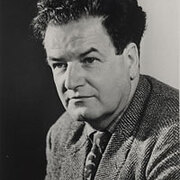Christopher Hill (1) (1912–2003)
Autor(a) de The World Turned Upside Down: Radical Ideas During the English Revolution
Para outros autores com o nome Christopher Hill, ver a página de desambiguação.
About the Author
Christopher Hill was born John Edward Christopher Hill in York, England on February 6, 1912. He attended Balliol College, Oxford University and later became the master of the college from 1965 until his retirement in 1978. In 1940, he was commissioned as a lieutenant in the Oxford and Bucks Light mostrar mais Infantry, before becoming a major in the intelligence corps in the Foreign Office from 1943 until the end of World War II. He was a Marxist historian whose work examined the role of economic factors in the events of 17th-century England. His works included The English Revolution 1640, Intellectual Origins of the English Revolution, God's Englishman, Reformation to Industrial Revolution, AntiChrist in 17th-Century England, Milton and the English Revolution, The World of the Muggletonians, The Experience of Defeat, and Liberty Against the Law. He died on February 23, 2003 at the age of 91. (Bowker Author Biography) mostrar menos
Obras por Christopher Hill
Puritanism and Revolution: Studies in Interpretation of the English Revolution of the 17th Century (1958) 203 exemplares
A Nation of Change and Novelty: Politics, Religion and Literature in Seventeenth Century England (1707) 28 exemplares
The Collected Essays of Christopher Hill, Volume 1 : Writing and Revolution in 17th Century England (1985) 20 exemplares
Economic Problems of the Church from Archbishop Whitgift to the Long Parliament (1956) 14 exemplares
The good old cause : the English revolution of 1640-1660, its causes, course and consequences: extracts from… (1969) — Editor — 10 exemplares
Religion and Politics in 17th Century England (Collected Essays of Christopher Hill, Vol 2) (1986) 9 exemplares
The collected essays of Christopher Hill: 3 volumes 3 exemplares
Seventeenth Century England: A Different World Unit 1: A Changing Culture, 1618-89 (Course A203) (1980) 2 exemplares
L'Inghilterra e l'Europa moderna : storie di donne, di uomini, di idee : omaggio a Christopher Hill : Pisa, 30-31 marzo (1995) 1 exemplar
Levellers and the English Revolution 1 exemplar
The religion of Gerrard Winstanley 1 exemplar
Past and Present - Origins and Early Years 1 exemplar
Lenin / Stalin 1 exemplar
Histoire économique et sociale de la Grande Bretagne. Tome 1/2 : Des origines au XVIIIeme siècle (1977) — Autor — 1 exemplar
Associated Works
Etiquetado
Conhecimento Comum
- Nome canónico
- Hill, Christopher
- Nome legal
- Hill, John Edward Christopher
- Data de nascimento
- 1912-02-06
- Data de falecimento
- 2003-02-23
- Sexo
- male
- Nacionalidade
- UK
- Local de nascimento
- York, Yorkshire, England, UK
- Local de falecimento
- Chipping Norton, Oxfordshire, England, UK
- Causa da morte
- cerebral atrophy
- Locais de residência
- York, Yorkshire, England, UK
Sibford Ferris, Oxfordshire, England, UK - Educação
- Balliol College, Oxford University (BA|1934)
St Peter's School, York, England, UK - Ocupações
- historian
professor - Relações
- Hill, Bridget (spouse)
- Organizações
- Communist Party of Great Britain
British Army (WWII)
Communist Party Historians Group
Oxford University (Balliol College|master) - Prémios e menções honrosas
- Fellow, British Academy (1965)
Membros
Críticas
Listas
Prémios
You May Also Like
Associated Authors
Estatísticas
- Obras
- 36
- Also by
- 9
- Membros
- 4,282
- Popularidade
- #5,869
- Avaliação
- 4.1
- Críticas
- 26
- ISBN
- 231
- Línguas
- 8
- Marcado como favorito
- 9
















